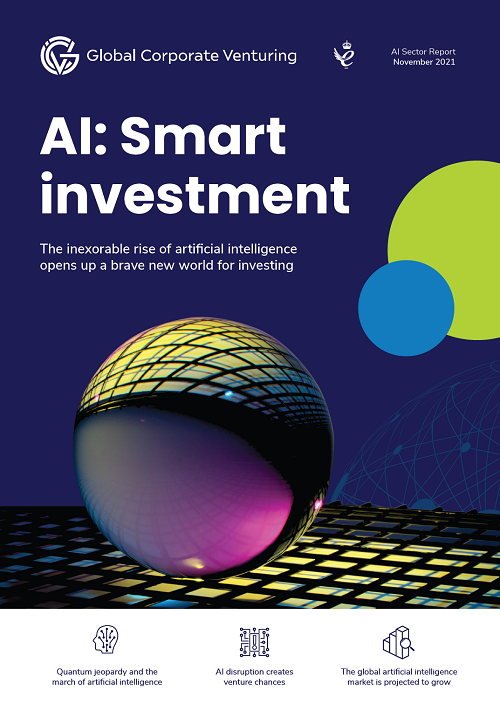AI Q4 2021 report editorial by James Mawson, editor in chief, Global Corporate Venturing
Corporations that fail to retain or support exceptional corporate venturing talent are likely to struggle.
And their shareholders will take notice. BlackRock, the world’s largest shareholder in public companies, described at the GCVsymposium in November how even its CEO, Larry Fink, has started to take CEOs to task for their failures.
At the follow-up GoFurther forum, James Anderson, legendary tech investor at UK-based fund manager Baillie Gifford, effectively agreed that the past quarter of a century has seen a failure of these institutional investors to recognise that companies paying back more in buybacks and dividends to current shareholders has been denuding these businesses of the armour needed to fit the innovation wars.
If this changes and more flows to innovation, and a glance at the record valuations ascribed in special purpose acquisition companies to acquire private companies and list them indicates there is a new willingness to support innovation and growth prospects, then corporate venturing should do well and be supported.
But it will only happen if the industry, through the www.GCVInstitute.com, continues to invest as much internally on its professional development and benchmarks itself rigorously to communicate with management and entrepreneurs how and why they add value and are competent. But how they invest in the entrepreneurs is changing. From equity or convertible loans to the offer of tokens paid using cryptocurrencies is novel, but the goals are the same – to align interests and reward help. The tokens and underlying blockchain developments also impact the far broader financial services industry and creates new winners and disruption to incumbents.
The metrics of success
But how investors find and select startups is also changing thanks to the use of artificial intelligence (AI) and greater analysis of data on what metrics make up a successful investment.
To understand the role of finance in innovation is sometimes seen as a bit dry or wonky. Certainly compared with the often dramatic founder stories of starting a business in a garage or from a couch and battling the nay-sayers.
The secular gospel of entrepreneurialism seems to point to the act of saving startups from stodgy, bureaucratic worlds. The financiers who eventually come in – collectively often known as venture capitalists (VC) – are usually begrudgingly recognised for the uses their money can be put to, but also the complications they can bring to the visionary founder trying to achieve a goal.
But an effective allocation of capital to those who can use it most effectively and efficiently is the hidden hand trying and delivering productivity growth and, in the process, raising wealth and better standards of life.
Innovation and capital work together and their reconciliation is important to us all. The sole founder or unhelpful VC are hardly myths, but more stereotypes that impede the good news that can flow when they both work together.
Looking at the past decade, there has never been more money flowing to support these entrepreneurs, their ideas and innovations and trying to scale them up to tackle the challenges of our time. From carbon capture to doge coins and from messenger RNA-based vaccines to camera filters.
For corporations to add value through providing capital, customers and advice to the entrepreneurs is not easy to do well.
Uphill battle
Entrepreneurs face the lonely, uphill battle to turn their dreams into reality. Investors face lots of ideas and opportunities competing for their time and money and acting in a professional way to meet, select, support and exit these entrepreneurs takes time and experience.
New financial tools can help fund and govern them, but the goal in the new era of professional venture capital is still to meet and back the next generation of superstars. Any tool that can assist, such as AI, will be seized on by the smart just as any industry increasingly looks to incorporate better decision-making tools.
For the fourth consecutive quarter, AI startups have hit a global funding record. The sector is seeing 200% funding growth compared with 2020 as new companies focused on healthcare, fintech and retail and using AI take off, according to Ian Hogarth and Nathan Benaich, authors behind the State of AI report using CB Insights data.
The world will always reward the smartest investors.
“How investors find and select startups is changing, thanks to the use of artificial intelligence and greater analysis of data on what metrics make up a successful investment”











